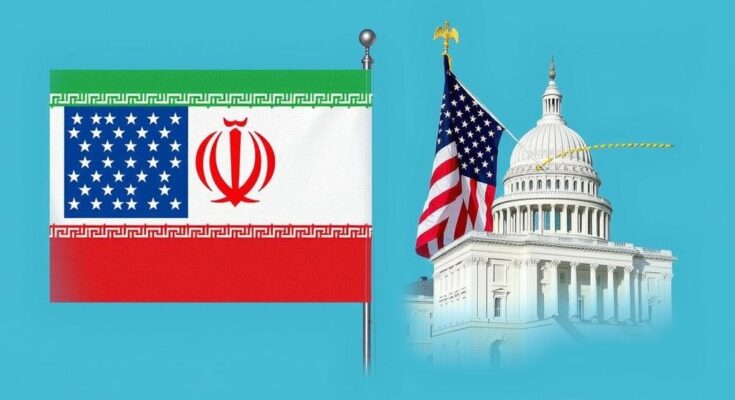Iran’s Foreign Minister Abbas Araghchi has declared that Iran will not negotiate with the US over its nuclear program unless the US returns to the JCPOA. Iran will, however, pursue talks with European nations, China, and Russia to discuss restarting negotiations. Current discussions have stalled since August due to the US’s hardline stance on sanctions. Iran seeks guarantees for future commitments from the US.
Iranian Foreign Minister Abbas Araghchi has articulated the stipulations of Iran concerning future discussions with the United States over its nuclear program. During a televised interview, he stated that negotiations will not commence unless the US returns to the Joint Comprehensive Plan of Action (JCPOA) and clarifies its policy regarding the nuclear agreement. Nevertheless, Iran will engage in talks with European nations, China, and Russia to explore pathways for resuming the nuclear negotiations.
Araghchi emphasized that Iran had never abandoned diplomatic discussions surrounding its nuclear ambitions, asserting confidence in the peaceful nature of the country’s nuclear program. He mentioned ongoing negotiations with the United Kingdom, France, and Germany, as well as with the European Union, highlighting efforts aimed at revitalizing talks pertaining to the JCPOA, which was originally signed in 2015 and undermined by former US President Donald Trump’s withdrawal in 2018.
The delicate negotiations to reinstate the JCPOA have persisted since April 2021 in Vienna, focusing on the United States’ willingness to rejoin the deal and lift sanctions imposed by the previous administration. However, progress has stagnated since August, primarily due to the US’s inability to lift all sanctions and Iran’s demand for assurances regarding the future commitment to any agreement reached. As the diplomatic impasse continues, Iran insists on clarifying mutual expectations before any meaningful progress on the nuclear negotiations can occur.
The discussion surrounding Iran’s nuclear program has long been a point of contention on the international stage, particularly since the inception of the JCPOA in 2015 between Iran and the P5+1 countries. The JCPOA aimed to limit Iran’s nuclear capabilities in exchange for sanctions relief. However, following the unilateral withdrawal of the United States from the agreement in 2018 under President Donald Trump, tensions escalated. The Biden administration has expressed a willingness to reinstate the agreement, but negotiations have been complicated by the previous administration’s sanctions on Iran and the need for assurances regarding compliance.
In summary, Iran’s conditions for discussing its nuclear program with the United States require a return to the JCPOA by the US, with clarity on its policy direction. Iran remains open to negotiation with European states and other allied powers while advocating for assurance regarding the commitments of any agreement. The future of these negotiations hinges on the United States’ actions and the ability of all parties to reconcile their positions.
Original Source: en.mehrnews.com




